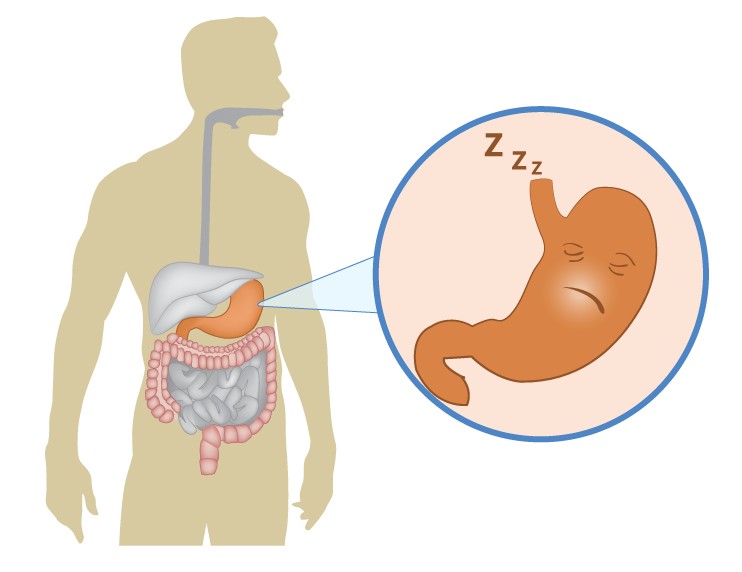Back
3 Ways Pelvic Floor PT Can Help Your Gastroparesis
By Pelvic Health Physical Therapy on 2/2/2024

Gastroparesis, also known as delayed gastric emptying, is a chronic condition that affects the stomach muscles and prevents proper movement of food from the stomach to the small intestine.
Gastroparesis significantly impacts quality of life, increases direct health-care costs through hospitalizations, ER or doctor visits.
Symptoms of gastroparesis can include:
Nausea
Vomiting
Early satiety
Post-meal fullness
Bloating
Upper abdominal pain
Management of gastroparesis can include:
Assessment and correction of nutritional state (via oral intake or via jejunostomy tube
Relief of symptoms
Improvement in gastric emptying
In diabetics, improved glycemic control
What are the types of gastroparesis?
Diabetic Gastroparesis (DG): Diabetes mellitus is the most recognized disease associated with gastroparesis. According to the National Institute of Health (NIH), delayed gastric emptying was more pronounced in patients with type 1 DG. The incidence of gastroparesis has been reported to be 5.2% in type 1 diabetes, 1% in type 2 diabetes, and 0.2% in non-diabetic controls, according to studies.
Idiopathic Gastroparesis (IG): refers to a symptomatic patient from delayed gastric emptying with no detectable primary underlying abnormality for the delayed gastric emptying. This represents the most common form of gastroparesis. Most patients with IG are women; typically, young or middle aged. Nausea, vomiting and early satiety and bloating predominate in IG. Measurement of gastric emptying is important, as therapies differ if gastric emptying is delayed, normal, or rapid.
Postsurgical Gastroparesis (PSG): This occurs often with vagotomy (operation involving removal of parts of the vagus nerve) or vagus nerve injury. In the past, most cases resulted from vagotomy performed in combination with gastric drainage to correct complicated peptic ulcer disease. Since the development of laparoscopic techniques for the treatment of GERD, gastroparesis has become a recognized complication of fundoplication or bariatric surgery possibly from vagal injury during surgery.
How is it identified?
Gastric Emptying Scintigraphy: This is considered as the standard for diagnosis of gastroparesis, as it measures how much a meal is emptied. Most centers use an egg sandwich radioactively labelled with technetium sulfur collid (the same substance used to find cancer in the body). The meal would be consumed. Then gastric emptying is studied over a 4-hour period.
Wireless Motility Capsule (WMC): This measures pH, pressure, and temperature can assess gastric emptying by how long the capsule remains in the stomach’s acidic environment. Gastric emptying is determined when there is a rapid increase in the pH recorded indicating emptying from the acidic stomach to the alkaline duodenum.
Breath Testing: This test utilizes a non-radioactive substance (eg, spirulina) and studies the motility of the meal through your gastrointestinal system. Provides reproducible results that correlate with results on gastric emptying scintigraphy, including responsiveness to pharmacologic therapy.
Can Pelvic Floor Physical Therapy Help? Absolutely!!
Identify holes in your nutrition. During our initial examination, we will be asking your questions about your diet, your bathroom habits, etc. We will also require you to fill out a Bowel Diary to track your food and liquid intake, as well as how often you perform a bowel movement.
Perform pelvic exam: Assess pelvic floor muscles, identify dysfunction and abnormal activation. Here at Pelvic Health Center we evaluate your whole body when treating you, meaning that we assess your lumbar spine, thoracic spine, hips, and more to gain a better understanding of your condition.
Determine treatment: this may include myofascial release, coordination exercises/training, therapeutic exercise, manual therapy, behavioral recommendations, postural education/training, education/training on home exercise program, and modalities (E-stim, TENS, ultrasound, etc.).
If you’re experiencing symptoms of gastroparesis, please reach out to us here at the Pelvic Health Center in Madison, NJ to set up an evaluation & assessment! Feel free to call us 908-443-9880 or email us at contact@pelvichealthnj.com.
Read More:
How Chronic Pelvic Congestion in Men Contributes to Prostatitis By Shannon Strauch, PTA, STMT-1 on 12/11/2024 How lymphatic issues can cause symptoms of prostatitis Prostatitis and Tight Pelvic Floor Muscles: A Comprehensive Guide By Shannon Strauch, PTA, STMT-1 on 12/10/2024 How a tight pelvic floor can be the reason for prostatitis symptoms
Are you ready to live pain free?
Request An Appointment